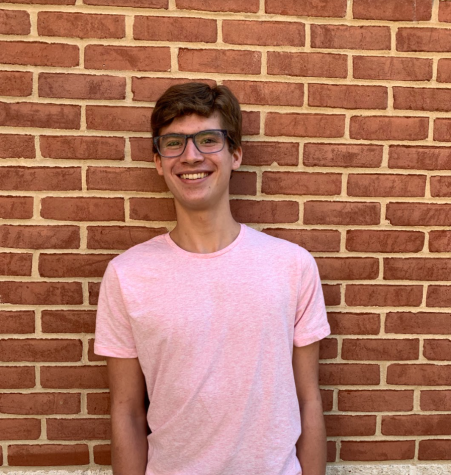The people, not the pursuit: What makes Whitman activities special
February 25, 2021
My partner and I had just lost our third consecutive debate round at the Columbia University Invitational, ending any possibility of us advancing to elimination rounds. I was fuming. But as all good friends do, my teammates saw that I was upset and came over to cheer me up. They explained to me how we could incorporate an argument about baseball into the topic being debated: lifting sanctions on Venezuela. In the last round, my partner and I delivered the unconventional argument. It was the highlight of my weekend.
I love Whitman’s extracurriculars. Every day after school, I get to participate in activities I enjoy with students who share similar interests. Corollary sports like bocce, handball and softball give me the opportunity to play competitive sports with classmates who would otherwise not be able to participate in Whitman athletics. On the JV baseball team my freshman year, I got to play a sport that I love in a competitive environment. On the quiz bowl team, I can geek out with other people who enjoy learning random tidbits of information. And in my favorite activity, the debate team, I get to argue with my friends about topics like foreign policy and economics.
Before the pandemic, I assumed that the reason why I loved these activities was because of the activities themselves. But when school closed in March and I had to leave my extracurriculars behind, I realized that it wasn’t the activities I would miss — it was the people.
Making that perfect pass in handball and arguing intensely about sanctions on Venezuela in debate are still things that I enjoy. But in two completely different ways, my experiences with virtual debate and online corollary sports have made me realize that the friendships I’ve forged with my clubmates and teammates are far more valuable than anything I’ve gained from the activities themselves.
My involvement in the Whitman Public Forum Debate team takes up a large portion of my free time and has introduced me to some of my best friends. In a normal year, the debate team travels across the country going to tournaments; I’ve already had the opportunity to visit Minnesota, Massachusetts and North Carolina. These tournaments are the culminations of weeks of argument preparation and hard work, but my favorite part of each comes when we aren’t debating. My friends on the team and I room together, eat every meal together and stay up late each night talking, playing Xbox and watching movies.
When debate moved online, it left me without the social aspects of the club that I looked forward to the most. My debate partner and I still meet up for virtual tournaments — socially distanced and outside, of course — but I don’t see my other teammates. We all eat alone and sleep at our own houses — no more late nights playing video games in our hotel room.
I still love debate, but it’s not the same. As much as I enjoy actually debating, the people I’ve met and the adventures I’ve gone on during tournaments, like the team’s trip to the Mall of America, are the best part of the experience. Anyone who knows me knows I hate losing. But at in-person tournaments, my friends are there after every loss to cheer me up and help me move on. We stuff our faces with Bojangles and Häagen Dazs ice cream and get over our losses together. That team bonding is now gone.
Bocce and handball are two of Whitman’s corollary sports, which allow students with both intellectual and physical disabilities to play alongside students without disabilities. Being a member of the virtual bocce and handball teams has made me realize the same thing that virtual debate tournaments did: Whitman’s extracurriculars are what they are because of the people, not the activities themselves. We have virtual “practice” twice a week, during which we catch up, talk strategy and discuss our plans for the upcoming spring in-person season.
Just like with debate, the team environment isn’t the same. Because practices are online and we can’t play games, there’s no satisfaction to shooting the perfect bocce shot and no rewarding feeling of scoring a handball goal. But we’ve been able to retain some of the community that I missed so much. The team still laughs and jokes together. We still discuss our weekend plans and bond over what’s stressing us out about school.
I’m extremely excited to go back to school in person. I can’t wait for the moment when I can first play a handball or bocce game again or when I can travel with my friends to Kentucky for debate. But in the meantime, I’ve realized that I can enjoy my extracurriculars, even while they’re online. I love these activities because of the communities they create and the people who do them with me.









